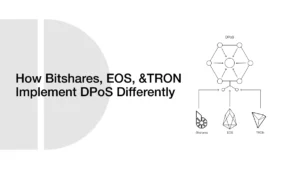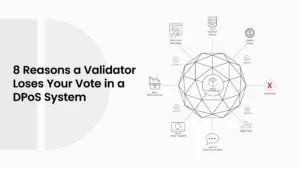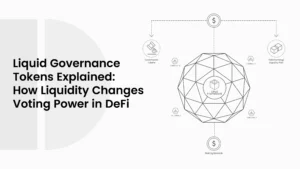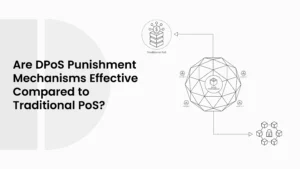How Yield Wars Between Validators Distort DPoS Ecosystems
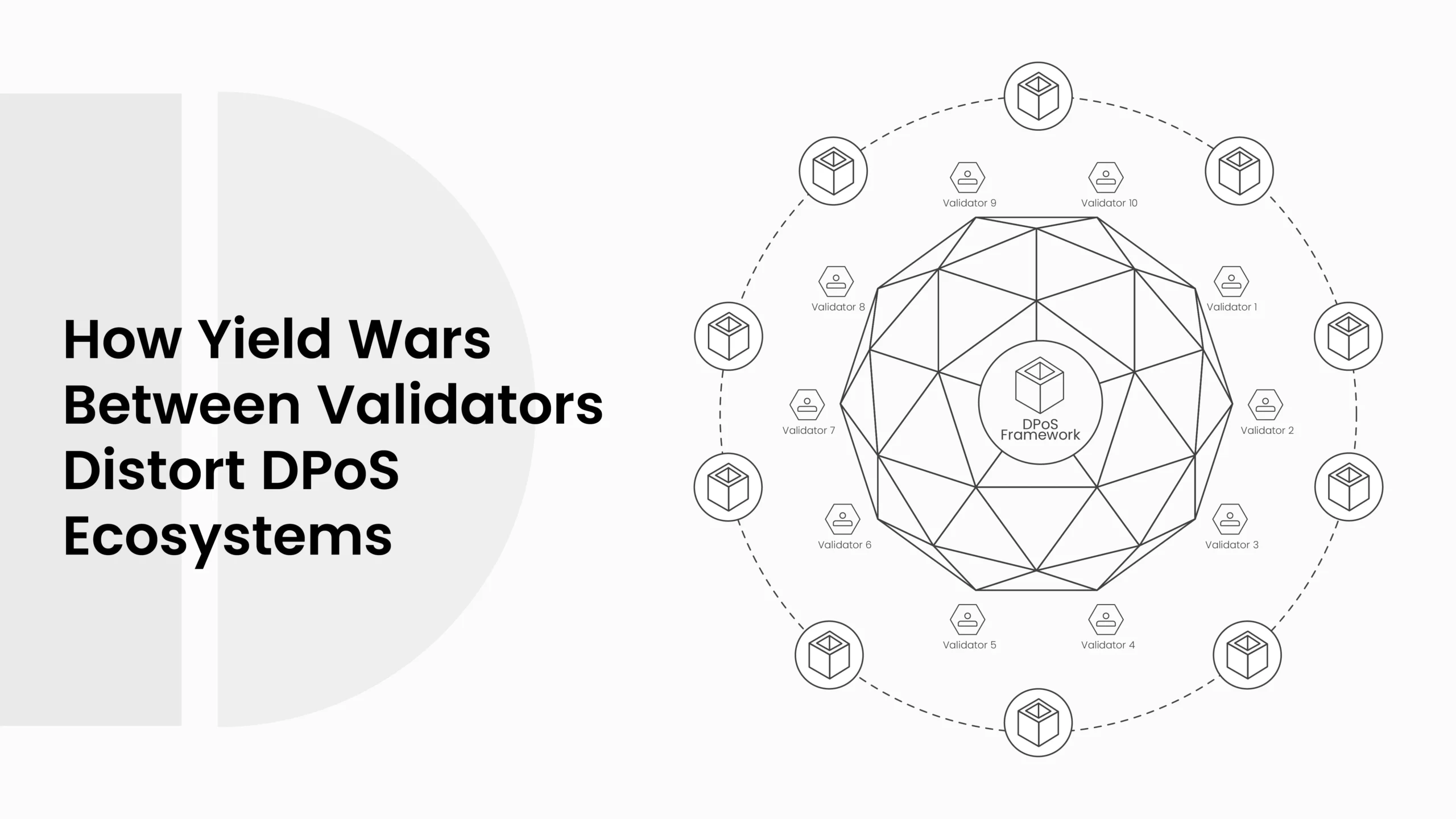
Delegated Proof of Stake, or DPoS, was created to make blockchains faster and fairer. In this system, token holders can vote for validators. Validators are the ones who keep the network running by making new blocks and checking transactions. In return, they earn rewards, and most of the time, they share those rewards with the voters.
- Understanding Delegated Proof of Stake (DPoS)
- Basics of DPoS Systems
- Difference Between DPoS and PoS
- What Are Yield Wars?
- How Validators Compete on Rewards
- The Role of Token Holders
- How Yield Wars Distort Incentives in DPoS
- Shift From Security to Profits
- Centralization Risks
- Governance Capture
- Case Studies of Yield Wars in Action
- EOS Example
- TRON Example
- Impact on Token Holders and Small Validators
- For Token Holders
- For Small Validators
- How Yield Wars Harm Network Stability
- Technical Risks
- Economic Risks
- Governance and Credibility
- Solutions to Control Yield Wars
- Better Governance Models
- Reward Distribution Reform
- Education for Token Holders
- Future of DPoS if Yield Wars Continue
- Possible Decline of Trust
- Push Toward Hybrid Models
- Research Directions
- Final Thoughts
- Frequently Asked Questions About Yield Wars
- What are validator yield wars in DPoS?
- How do yield wars affect token holders?
- Why do validators promise high returns?
- Can yield wars destroy a DPoS network?
- What solutions exist to stop yield wars?
- Glossary of Key Terms
But over time, something strange started to happen in many DPoS networks. Validators began to fight for more votes by promising bigger and bigger returns to token holders. This fight for higher returns is what people call yield wars. It sounds good for the voter at first because you earn more tokens, but in reality, it can damage the whole system.
Yield wars turn the network into a place where rewards matter more than real work. Validators that should care about security or honesty start focusing only on how to offer the highest yield. The ecosystem gradually becomes distorted, meaning it no longer functions as intended.
ALSO READ: Token Concentration and Power in DPoS: Can Whales Dictate Validator Outcomes?
Understanding Delegated Proof of Stake (DPoS)
Basics of DPoS Systems
The easiest way to understand DPoS is to think of it like an election. Imagine every person holding tokens is a voter. They choose who will run the network by casting votes for validators. The more tokens you hold, the more voting power you have. Validators with the most votes become active and start making blocks.
Validators do not work for free. They earn block rewards, which are new tokens created by the system. Many validators share these rewards with the voters who supported them. This is called delegation reward sharing, and it is what makes DPoS attractive for normal token holders. You can stake your tokens with a validator and earn passive income.
Difference Between DPoS and PoS
Delegated Proof of Stake is not the same as Proof of Stake. In PoS, many people can run validator nodes if they lock enough tokens. But in DPoS, only a limited number of validators are active, maybe 21 or 101, depending on the blockchain. That means power is much more concentrated.
This concentration is good for speed but also risky. Since only a few validators control the system, competition between them becomes intense. They need more votes to stay in power, so they start using different tricks to attract voters. That is how yield wars get started.
What Are Yield Wars?
How Validators Compete on Rewards
Yield wars happen when validators start promising higher and higher returns just to win votes. Instead of saying, “This has the most secure servers” or “Let’s support community development,” validators say, “Giving you the best yield.” Some even spend extra money or create fake bonuses just to lure delegations.
It becomes like a race where validators no longer care about the health of the network. The only thing that matters is who can offer a higher percentage to the token holders. When this happens, small validators cannot keep up because they don’t have extra funds to burn. Only the richest validators survive, and that is bad for decentralization.
The Role of Token Holders
Token holders are not innocent in this game. They are the ones chasing higher yields and moving their tokens from one validator to another. For them, it feels smart because they earn more, but in truth, it is like cutting the branch they are sitting on. If the network gets weaker, the token value itself will go down, and then those yields will not matter anymore.
Token holders want quick rewards. Validators want votes. Together, they create a cycle of yield wars that slowly erode the original purpose of DPoS, which was fairness, speed, and shared governance.
ALSO READ: DPoS as an Economic Laboratory: Incentives, Rewards, and Risks
| Validator | Promised Yield | Real Contribution to Network | Outcome |
| Validator A | 8% | Runs stable servers, contributes to code | Loses voters because yield is “too low” |
| Validator B | 12% | Medium servers, no community effort | Gains many votes because of high yield |
| Validator C | 15% | Poor infrastructure, unsustainable payouts | Wins short term but may crash later |
How Yield Wars Distort Incentives in DPoS
Yield wars may look harmless in the beginning, but they slowly change the whole system from the inside. DPoS was built to reward validators who do good work for the network, like running reliable nodes, fixing bugs, or supporting the community. But when yield wars begin, the reward system shifts. Validators realize they don’t need to be the best in security or governance; they only need to give higher payouts.
Shift From Security to Profits
Instead of investing in better servers or hiring skilled engineers, some validators spend their money on marketing or fake incentives. They use their income to pay voters more, even if it means cutting corners. The network gets weaker because nobody wants to spend on stability anymore. Profits come first, security comes later, if at all.
Centralization Risks
Yield wars are dangerous for decentralization. The richest validators can afford to give away the most rewards. Smaller validators cannot compete and slowly lose voters. Over time, only a few big validators survive, and they start controlling most of the votes. This defeats the whole purpose of DPoS, which was to give many people a voice.
Governance Capture
Governance in DPoS is supposed to be fair. Token holders vote and decide on upgrades or changes. But when only a few validators control most of the votes, they can push their own agenda. It becomes governance capture, meaning decisions are no longer about what is best for the community but what is best for the top validators.
| Factor | Healthy DPoS | Yield War DPoS |
| Validator Focus | Security, uptime, innovation | Payouts, marketing, promises |
| Token Holder Behavior | Votes based on trust and contribution | Votes based only on highest returns |
| Network Stability | Strong and reliable | Weak and fragile |
| Governance | Shared decision making | Controlled by a few large players |
Case Studies of Yield Wars in Action
Yield wars are not just a theory. They already happened in major blockchains that used DPoS. The most famous cases are EOS and TRON.
EOS Example
EOS was once one of the biggest names in DPoS. In the beginning, validators were supposed to compete on who could run the most reliable infrastructure and support the ecosystem. But soon after launch, reports came out that validators were giving back most of their rewards to voters. This was basically a bribe to secure votes.
ALSO READ: Sustainability of DPoS in a Multi-Chain Future: Will DPoS Scale or Fade?
Validators that promised high rebates gained huge support, while those that focused on actual technical work lost ground. Over time, only a small circle of powerful validators dominated the system. The network became fast but not truly decentralized, because power was locked in the hands of those who could afford to buy votes.
TRON Example
The TRON network went through similar problems. In TRON, yield wars turned into open vote buying. Validators competed not with strong governance plans but by paying the highest rewards. Many small validators could not survive this pressure and dropped out of the competition.
The result was more centralization and less innovation. TRON still runs and is popular in some areas, but the fairness of its governance is often questioned. Critics say yield wars turned it into a system where money decides everything, not community trust.
Impact on Token Holders and Small Validators
Yield wars not only hurt the validators, but they also hurt the whole community around the network. The first people to feel it are token holders and small validators.
For Token Holders
When a validator promises a very high yield, token holders rush to stake with them. At first, this feels like a win. You get more rewards, more tokens in your wallet, and it seems like free income. But this happiness does not last long. If validators cut costs on infrastructure or make the system weak, the network itself loses value. When the network becomes fragile or when governance is captured, the token price can fall. So even if you earn more yield, the real value of your holdings goes down.
This is like getting free candy, but at the same time, your house is burning. You enjoy the sweetness, but later you pay a much bigger cost. Many token holders do not see this long-term danger and just keep chasing short-term profits.
For Small Validators
Small validators suffer the most in yield wars. They often don’t have big budgets or large token reserves. They rely on honesty, transparency, and good infrastructure to attract votes. But when voters only care about yield percentages, small validators lose their chance.
They get pushed out of the competition because they cannot offer 12% or 15% like the big guys. Slowly, the number of active validators goes down, and only a few remain. This creates centralization, where the network is basically controlled by a handful of players. It looks decentralized on paper, but in reality, it is not.
| Group | Benefit | Drawback |
| Token Holders | Higher short-term rewards | Long-term token price drop, unstable network |
| Big Validators | More votes, stronger control | High expenses, risk of unsustainable promises |
| Small Validators | None | Lose voters, pushed out of network |
How Yield Wars Harm Network Stability
When validators compete only on yield, the overall health of the blockchain begins to collapse. Stability is not only about making blocks on time but also about making sure the network can grow, adapt, and resist attacks. Yield wars create cracks in this foundation.
Technical Risks
Validators who spend all their income on rewards often save money by using weaker servers or cheaper infrastructure. That means more outages, more downtime, and a greater chance of missed blocks. In a blockchain, every missed block is like a broken piece of trust. Over time, the technical strength of the network falls, and it becomes easier for attackers or hackers to cause damage.
Economic Risks
Yield wars inflate the economy inside the network. When validators give out too many rewards, the circulating supply of tokens goes up fast. More tokens in circulation without real demand causes inflation. This makes the token less valuable. Token holders may realize they are earning “more tokens,” but each token is worth less. The result is negative for the whole community.
Governance and Credibility
DPoS was built to be community-driven, with fair voting and strong governance. But yield wars weaken governance because decisions are no longer made for the future of the network. They are made to protect the short-term profits of the biggest validators. This destroys credibility. New users may not want to join a system where only a few validators hold all the power.
Solutions to Control Yield Wars
Yield wars are not impossible to fight. Many DPoS networks are already testing solutions to reduce the damage. The goal is not to stop competition, because competition is good, but to make sure the competition stays healthy.
Better Governance Models
One way to control yield wars is to create stronger governance rules. For example, slashing penalties can punish validators who cheat or who only care about payouts but fail on performance. Another approach is to set community-driven standards for validators, where token holders do not only look at yields but also at reputation, uptime, and contribution.
Reward Distribution Reform
Some projects are also looking at reward reform. Instead of letting validators promise whatever they want, the system itself can set fair limits. This avoids extreme promises that are not sustainable. Balanced rewards make sure validators focus on security and stability, not only on who can give the most.
ALSO READ: Latency and Finality in DPoS: Why Speed Comes with Trade-Offs in Security
Education for Token Holders
Maybe the most powerful solution is education. Token holders need to understand that short-term yields are not worth it if the network collapses. If people know the risks of yield wars, they may vote more responsibly and not fall for the highest percentage bait. A community that values stability will naturally reduce yield wars.
| Solution | How It Helps | Challenge |
| Slashing penalties | Punish bad validators | Hard to enforce fairly |
| Reward limits | Stops unsustainable yields | May reduce competition |
| Community standards | Encourages quality validators | Needs strong participation |
| Token holder education | Long-term awareness | Slow to change behavior |
Future of DPoS if Yield Wars Continue
Yield wars are like a disease for DPoS systems. If they continue unchecked, the future does not look bright.
Possible Decline of Trust
The biggest risk is trust. If users feel that governance is captured and validators are only in it for profit, they will leave. Token value will fall, and the network may slowly die. Without trust, no blockchain can survive, no matter how fast or advanced it looks on paper.
Push Toward Hybrid Models
Some experts believe that if yield wars keep growing, DPoS will need to evolve into hybrid models. This means combining DPoS with other systems like regular PoS or even proof of authority. The idea is to balance decentralization with stronger guardrails that keep yield wars under control.
Research Directions
There is also space for new research. Some teams are looking at AI tools to monitor validator performance and catch signs of unsustainable yield wars early. Others are testing new voting systems that limit the concentration of power. The future of DPoS will depend on how fast these solutions are adopted and whether the community is ready to prioritize long-term stability over quick profits.
Final Thoughts
Yield wars may sound like an exciting game of who gives more money, but in truth, they are dangerous for DPoS ecosystems. What starts as a fight for votes quickly becomes a race to the bottom. Validators that should be focusing on security, stability, and community start wasting resources on short-term promises. Token holders keep moving to the highest yields, not realizing that this weakens the very token they are holding.
The long-term effect is clear. Networks that fall deep into yield wars see centralization, where only a few big validators survive. They see weaker infrastructure because validators save costs to afford high payouts. They see governance capture, where decisions are no longer made for the community but only for a few top players. The system becomes fragile, and one day it may collapse under its own weight.
But there is still hope. DPoS is not doomed. If networks add better governance models, fair reward systems, and more community education, yield wars can be controlled. Token holders can learn that sustainable growth is better than chasing quick rewards. Validators can be judged on uptime, transparency, and honesty, not only on yields. With these changes, DPoS can still offer what it was built for: fast, fair, and community-driven blockchains.
The choice is in the hands of the people using the networks today. Either they let yield wars keep distorting incentives, or they demand reforms that bring balance back.
Frequently Asked Questions About Yield Wars
What are validator yield wars in DPoS?
Yield wars happen when validators compete for votes by offering higher and higher rewards to token holders. Instead of focusing on security or governance, they focus only on paying more. This race for higher payouts can distort the whole ecosystem.
How do yield wars affect token holders?
At first, token holders earn more rewards, but in the long run they lose. If validators cut costs on infrastructure, the network becomes weak. When trust falls, the token price also falls. So even if you have more tokens, the value may go down.
Why do validators promise high returns?
They do it to win votes. In DPoS, only a limited number of validators can be active. To stay in power, they need token holders to vote for them. High yields are the easiest way to attract those votes.
Can yield wars destroy a DPoS network?
Yes, they can. When yield wars go too far, they cause centralization, weak governance, and poor infrastructure. The network loses trust and adoption. In extreme cases, the blockchain can die because users move away.
What solutions exist to stop yield wars?
Possible solutions include slashing penalties for bad validators, limits on extreme reward promises, community-driven standards for performance, and education for token holders. These steps make the system more balanced and reduce unhealthy competition.
Glossary of Key Terms
DPoS (Delegated Proof of Stake): A blockchain system where token holders vote for a small group of validators who produce blocks and run the network.
Validator: A node that confirms transactions, creates blocks, and earns rewards in a blockchain system.
Token Holder: A person who owns tokens and can delegate them to validators in DPoS.
Delegation: The act of giving tokens to a validator to earn a share of rewards.
Yield Wars: Competition between validators where they promise higher rewards to attract more votes.
Governance Capture: A situation where a few validators control decisions in the network.
Slashing: A penalty system where validators lose tokens if they act badly or break rules.
Centralization: When power and control are held by only a few players instead of being spread out.

